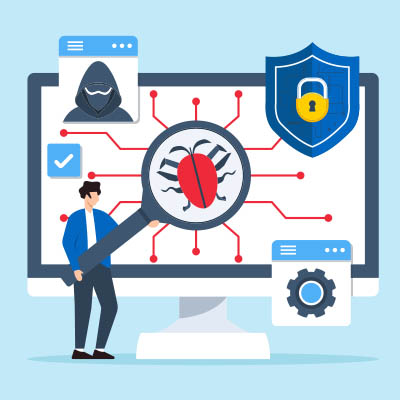Three Best Practices to Avoid Getting Hacked

Data breaches can cripple companies and can come from a lot of different directions. They can be the result of phishing attacks where your staff unwittingly gives hackers access to your business’ resources. It can come from a brute force attack where hackers use innovative tools to break into your network. It can even be the work of disgruntled employees who use their access to steal company data. This month, we want to outline the top three things you can do to keep your business from being hacked.
What Do We Mean By Being Hacked?
When you get the mental image of a hacker, you probably think of a heavily pierced lone operator dressed all in black at a laptop in a grubby room, flawlessly typing code. While these people may exist, most hackers are simply opportunists who use human behavior more than code to infiltrate computing systems. There are a few actions you can take to significantly lower the chances of these opportunists accessing your business’ data.
Let’s go through a few:
Implement Strong Access Controls and Authentication
The first thing you will want to do is set up strategic access control. Most accounts nowadays come with a multi-factor authentication option that requires multiple forms of verification before granting access to systems or data. This adds an extra layer of security beyond just passwords.
Another thing to consider is setting up role-based access controls. This allows you to limit access to data and systems based on an employee’s role within the company. With employees only having access to the information necessary for their job functions, you don’t have to fret that they could jeopardize other data.
Finally, you should enforce the use of complex passwords. The best way to do this is to use a password manager to help employees create and manage their passwords without remembering them all.
Regularly Update and Patch Systems
Cybercrime is often carried out against a company that has active holes in its network and infrastructure. This is mostly because the company fails to properly update its software and firmware in a timely manner. As these updates often include security fixes for known vulnerabilities, they can be a big step toward keeping unwanted actors out of your network.
A good practice is to automate as many updates as you can. You can create systems that automatically install updates and patches. This helps to decrease the likelihood of missing crucial security updates. By setting up these systems, you can ensure that your software is always updated with the latest security measures. This can help protect your devices and data from potential security threats.
Employee Training and Awareness
Some organizations that don’t get hacked have a comprehensive end-to-end security training platform. Even if you can’t afford something like that, regularly training employees on cybersecurity best practices, including recognizing phishing attacks, avoiding suspicious downloads, and understanding the importance of security processes, can go a long way toward keeping your network and infrastructure secure.
We Can Help You Keep Hackers Out
If you need help with your organizational cybersecurity (and let’s face it, who doesn’t?) give the IT professionals at White Mountain IT Services a call today at (603) 889-0800 to get started.


